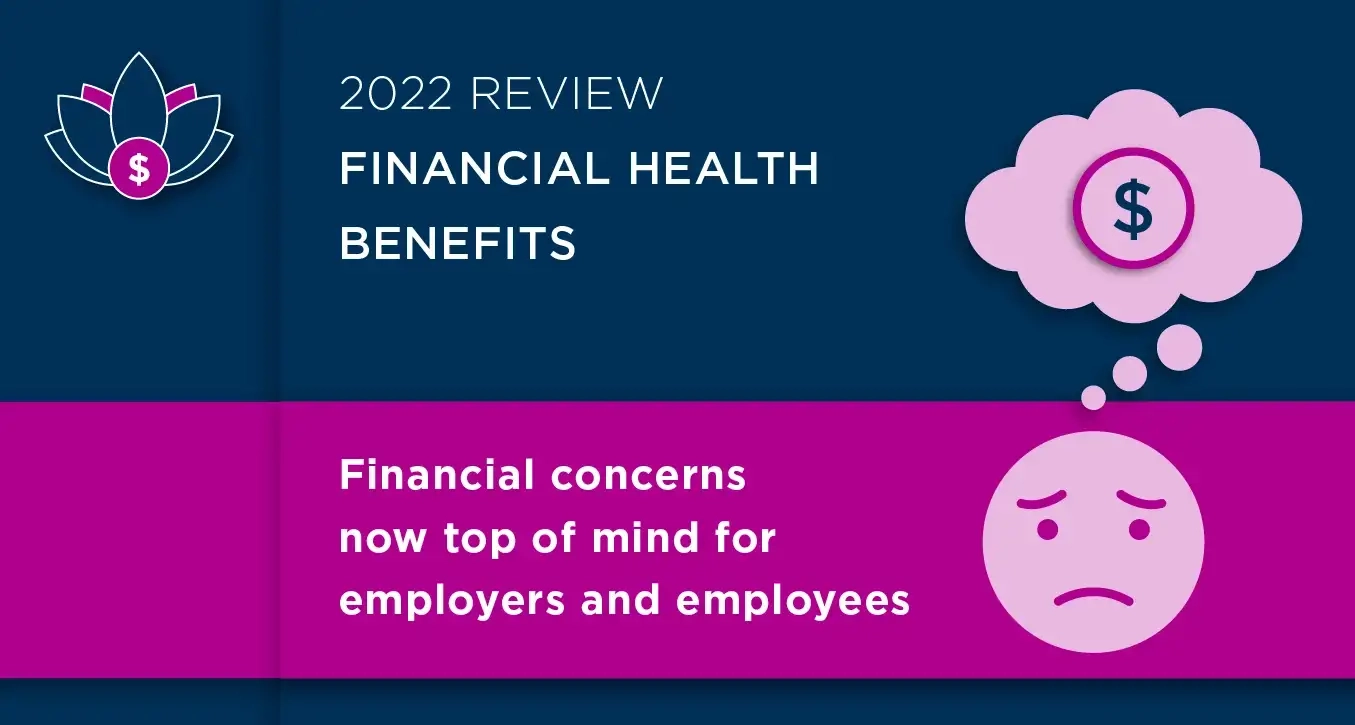Research from Bank of America, Morgan Stanley, Mercer suggests 2022 marks an epochal change in employers’ and employees’ attitudes about financial health benefits.

From “nice to have,” to necessary to compete, to competitive advantage, financial health benefits are on the rise as a key ingredient in the recipe for success among businesses and organizations of all sizes.
97 percent of employers now feel responsible for employee financial wellness according to Bank of America’s 2022 Navigating a New Era of Financial Wellness report, up from 41 percent in 2013.
“I used to hear from employers all of the time something like, ‘I think helping employees with their financial health with coaching might be a good thing. It might help them, but I’m not sure,’” says Milly DuBouchet, Lead Business Development Manager, TrustPlus. “Now, I am far more likely to hear, ‘I want financial health benefits and coaching for my employees. I know it’s what they need.’”
From Nice to Have to Must Have
This change is being driven by employers who increasingly understand the recruiting and retention, productivity and wellness benefits of a financially healthy workforce, and by employees who increasingly need financial health benefits to cover day-to-day expenses, a confluence of events unlike anything seen in U.S. business history: financial concerns are now top of mind for employers and employees.
Employers are competing for talent and looking for ways to drive productivity and profitability or mission impact.
Employees are navigating sky-high inflation–compounding COVID effects that continue to hit hardest low- and moderate-income workers of color, especially women and young mothers–plus a system of jobs and benefits that fails to offer most of them financial security.
Financial Concerns of Employees Reign Supreme in 2022
The “financial concerns of employees reign supreme this year” according to consulting firm Mercer, with three out of four employees saying decades-high inflation and market volatility significantly increased their financial stress. “Covering monthly expenses” went from the ninth rated concern of employees in 2021 to the top concern in 2022.
Meanwhile, 71 percent of U.S. employees say financial stress is negatively affecting their work and personal life according to Morgan Stanley’s State of the Workplace Financial Benefits Study. With 63 percent of U.S. workers now living paycheck to paycheck including nearly half of employees earning at least $100,000 per year, personal finance is on employees’ minds, on and off the job, up and down the income ladder.
The businesses and organizations who adapt to meet these epochal changing needs, who tweak their recipes, will set themselves and their employees up for success in the epoch ahead.
Schedule a time to speak with financial health and productivity expert Milly DuBouchet about how TrustPlus can help your business or organization capture the benefits of a financially healthy workforce.
